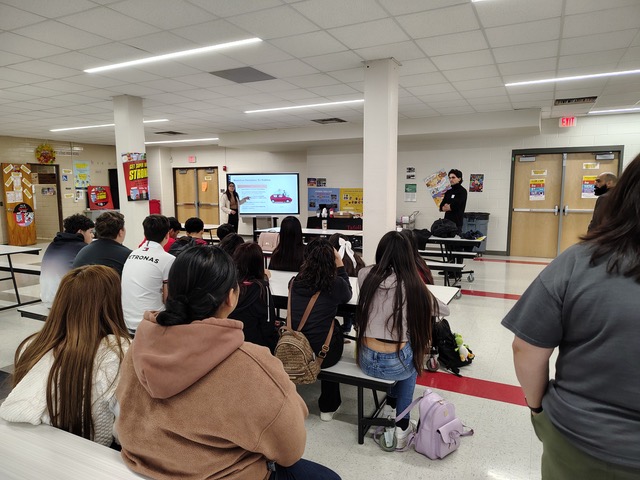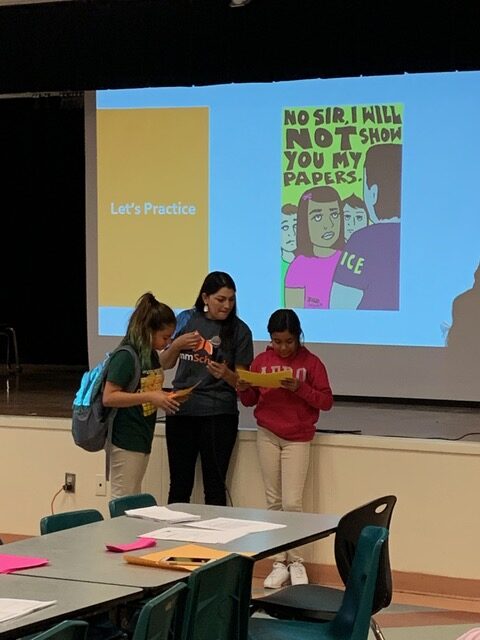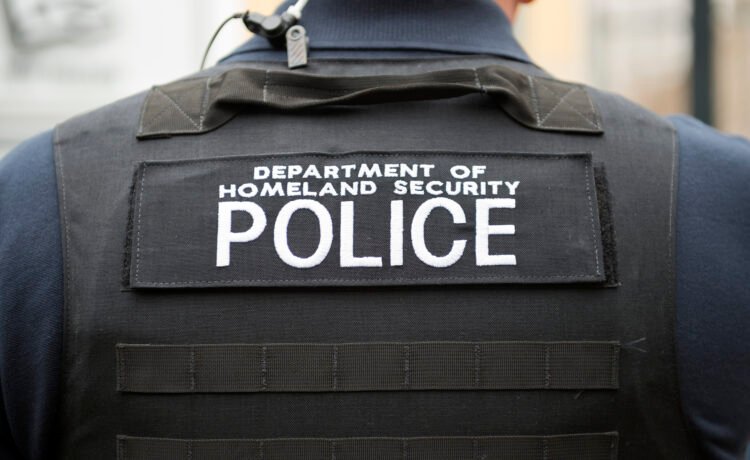About 4.4 million children who were born in the United States have at least one parent who is undocumented. The Pew Research Center estimates that 733,000 school-aged children are undocumented. Immigration was a focus of the 2024 Trump presidential campaign; Donald Trump promised to start mass deportations and a push to end birthright citizenship. Teachers and school leaders are thinking it through.
Will deportations happen?
Right now, we don’t know how much of the rhetoric will become reality as the Trump administration takes over Washington. In his first term, Trump did follow through on deportation raids and separations, so this situation is not new for families in the undocumented community, says Viridiana Carrizales, co-founder and CEO of ImmSchools, a nonprofit that trains schools in how to support immigrant students. Her team has been leading trainings for school leaders, teachers, and students to prepare them with information and skills they need in case there is a new round of deportations.
The biggest question for teachers, says Carrizales, is whether any of these raids or enforcement actions will happen at schools. For years, schools have been protected or sheltered areas, but that may change now that Donald Trump is in office. The Trump administration has said they will remove the policy that prevented immigration agents from arresting undocumented people near churches, schools, hospitals, and other locations, like funerals or weddings. If schools are not protected, immigration agents could stop parents and kids during pickup or drop-off, and parents may not send kids to school at all, out of fear.
Will this be different from state to state?
Already, each state is handling demands for mass deportations differently. In Missouri, a lawmaker suggested paying residents to let authorities know when someone is undocumented. A Texas law (SB 4) allows state officials to enforce immigration laws at the state level, including arresting people who cross the U.S.-Mexico border. And in 2024, other state legislatures proposed bills that would use the legal system to carry out federal immigration enforcement and punish people who entered a state without legal status. Depending on the state, people without documentation may live under protective laws, harmful laws, or no legislation (as of right now).
Teachers are worried.
One teacher posted on the We Are Teachers Helpline: “Things that keep me up at night … do any of your school districts have a plan for deportation raids? If so, what may it look like? If you can share.”
Teachers replied with their concerns:
In response to the announcement that a lawmaker in Missouri is considering paying people $1,000 for each undocumented immigrant that they turn in, Jennifer L. wrote, “I don’t think people will even be able to send their kids to school because there will be at least one student who sees it as a payday.”
April B. shared her experience from the previous Trump administration, when raids occurred at large meatpacking and industrial employers. After the raid, students were placed with older siblings or family, while a few were placed in foster care or deported. “The best you can do is to have those pre-established relationships so that they know you are a safe person to come to.”
Another teacher remembered when raids happened in 2016, her school worked with families to create a phone tree that they could use to quickly share information and warnings of raids. Fortunately, nothing happened, but getting ahead of raids that may happen felt supportive.
ESL teacher Jodi O. mentioned that schools are supposed to be safe spaces. “Schools are supposed to be a ‘sensitive location,’ and students cannot be taken from them unless there are extraordinary circumstances. Also, FERPA prevents us from providing personal information about our students.”
So, what should teachers know about how to handle immigration policy when it impacts schools and students?
First, know your students’ rights and protections.
Carrizales recommends understanding the federal policies and protections, as well as the policies that are already in place in your district. Families and students have rights, like their right to attend school. Knowing those rights makes teachers better prepared to advocate for families and to push back if anyone demands information or actions that go against federal law.

In addition to doing the right thing, teachers also want to avoid putting students at risk unintentionally. “Understand the legal and federal rights students have, knowing that information could be the difference between supporting students and putting them at risk,” says Carrizales.
Use FERPA to your advantage.
All teachers should know that the federal privacy law, FERPA, prevents schools and teachers from giving out student information. Even if a federal official requests information, schools cannot give out information without following FERPA protocols.
Talk it through.
Within your school, talk about how you will address potential scenarios. What happens if an immigration officer shows up in the middle of the day? What happens if a child’s parents do not come to pick them up after school? How can you explain the threat of deportation to your students? Having a plan for these situations will help you react in a supportive, purposeful way.
Prepare students.
Teachers of older students can teach students what to look for if a federal official comes to their door, and how to speak to federal officials. Having phrases in English that they can use, and knowing the difference in various types of officials (the local police compared to an immigration official) or what different types of warrants look like, can help students make the right decision in the moment.

Be a trusted person.
With all students, Carrizales recommends building trust with parents and students so parents see the school as a trusted entity. Work with counselors and school social workers to respond to students’ and family’s concerns.
Resources for K-12 Teachers and Schools
Many thanks to Children’s Defense Fund for this comprehensive list. Please visit their website for more info.
Resources from the AFT, NILC, and CLASP, January 2025
These fact sheets provide information on how schools can protect student privacy, restrict ICE enforcement, and support students and families impacted by enforcement.
More January 2025 Resources
- How School Districts Can Take Action To Protect Their Immigrant Students, The Century Foundation, December 2024
- Explains 2017 NYC Public School policy put in place to protect immigrant students from ICE enforcement and how other school districts can model it.
- The Legal Authority for “Sanctuary” School Policies, NILC, August 2018
- Provides background on the rights of schools related to immigrant students and families, and provides guidance for creating sanctuary policies in school settings.
- Promoting a Safe and Secure Learning Environment for All: Guidance and Model Policies to Assist California’s K-12 Schools in Responding to Immigration Issues, California DOJ, Office of the Attorney General, December 2024.
- Guide from California to equip local educational agencies with the updated information and resources necessary to continue to provide safe, welcoming environments for all students and to safeguard the rights and privacy of students and their families.
- Immigration Enforcement in Schools, MALDEF, January 2025
- Guidance from the Mexican American Legal Defense and Educational Fund on immigration enforcement in public schools as it relates to Plyler v. Doe.
- ImmSchools’ Safe Zone Resolutions for School Districts Resource Folder
- ImmSchools’ resource folder has information on creating safe zone policies, responding to ICE agents at schools, and resources on subpoenas and warrants.








Recent Comments